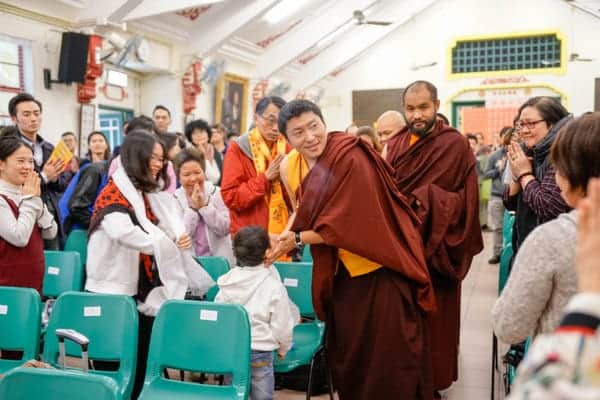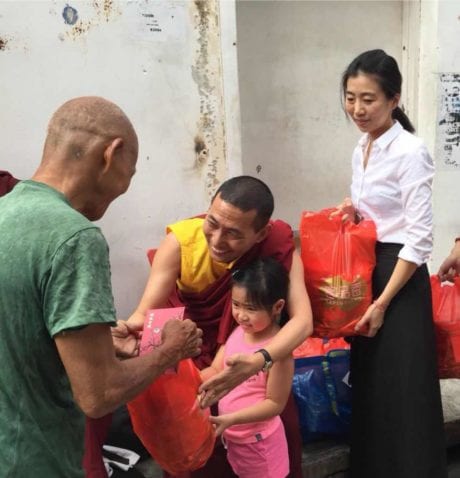Buddhist parents sometimes ask how best to apply the teachings when relating to their family life. In this short audio teaching, Phakchok Rinpoche shares some practical advice for Buddhist parents.
Buddhist Parents Teach by Example
First and foremost, Rinpoche repeats a common theme — be kind! Then, we can help children by modeling good behavior. When we engage in practice — meditation, pujas, rituals — let the kids come into the meditation or shrine area. Welcome them into this part of the home and try to talk very simply and gently about compassion, kindness, and goodness.
Encourage children to be generous, and show them how to give to those who are less fortunate. This is important. We shouldn’t hide the truth of poverty and suffering from children. Instead, we can take them to homeless shelters or soup kitchens and teach them how to give correctly with great respect. We can demonstrate how to treat everybody with kindness and with love.
Younger Children
Also, we can tell some simple stories about buddhas, bodhisattvas, and Guru Rinpoche.
As we put the kids to bed, we can teach them to ask Guru Rinpoche for blessings. When children are 6-10 years old, we can share a lot of advice and stories. We can also share short, easily understandable tips without making it too heavy or like a lecture. For example, we can suggest that when they feel upset or frustrated, they can learn how to handle that by focusing gently on the breath.
As the children mature, we can share more so when they are teenagers, we can give them simple booklets to read. But we need to be wise. We can’t push too much with teenagers or they may rebel.
Teenagers
When children reach their teens, they often put up resistance or rebellion. So, at that time, we learn to be careful not to bombard them with information. Be delicate and just use hints at this stage!
Young Adults
Once children end their teens and enter their twenties, we can give them the opportunity to go to Dharma centers or to attend meditation retreats. Again, we shouldn’t push them too hard — but allow them the opportunity to explore. Often if they spend just one or two days at a center it is enough to give them a taste. And encourage them to go to centers where there are other young people around. It is much more welcoming if they meet people their own age who are interested in the dharma and in following a spiritual path.
We can learn how to be skillful in this way. It is also good to give them some responsibility because we only grow when we take on responsibility. In the beginning, start with little things, like helping to light incense or cleaning the shrine area.
But we also can encourage our children to grow by giving them responsibilities in daily life, like helping to care for their brothers and sisters. When we apply such methods skillfully, we can instill kindness and compassion.












Responses